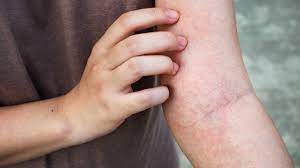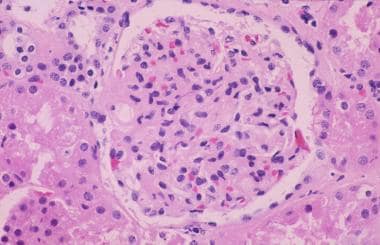Itching in haemodialysis patients: what’s it related to?
Why is this important?
Itching (pruritus) is one of the most uncomfortable symptoms in kidney failure. The causes remain elusive. In a recent study by Sukul, 2023 traditional associations (dialysis dose, renal bone disease) were investigated.

What did this study show?
7,976 haemodialysis patients across 21 countries, were assessed at baseline and 12 months later. Symptoms of pruritus and routine investigations were assessed at baseline and 1 year later.
Amongst those experiencing itching at the initial assessment, 51% had persistent symptoms 1 year later.
Depression, restless sleep, and feeling drained increased over the study period (+13%, +10%, and +14%, respectively) amongst patients with current pruritus; and decreased (−5%, −8%, and −12%, respectively) among patients with resolved pruritus.
There was no relationship between laboratory tests (e.g. calcium, phosphate and Kt/V (dialysis dose)) and itching in both groups.
Compared with patients with no pruritus, in the patients with pruritus, there was a 29% increase in all-cause mortality, 17% increase in hospitalisation, and 48% increase in cardiovascular events (e.g. heart attacks).
The authors concluded itching is linked to poor outcomes, but is not linked to investigations that are traditionally thought to be linked to it. They felt that more work is needed to determine the cause of pruritus; potentially uncovering whether it in some way causes (or is associated with) increased mortality.
They also felt that future studies should also focus on the impact of treatment on pruritus, which remains one of the hardest symptoms to treat in kidney failure.
How does this study affect you?
If you are on haemodialysis, especially if you have itching, this study does help understand what’s going on. In about half the symptoms will get better, which is good news. But if they do not, it emphasises that you should alert your kidney doctor (nephrologist) to the symptoms so they can be addressed. Not all treatments are effective for all, so you should try different ones.
Last Reviewed on 26 June 2024

